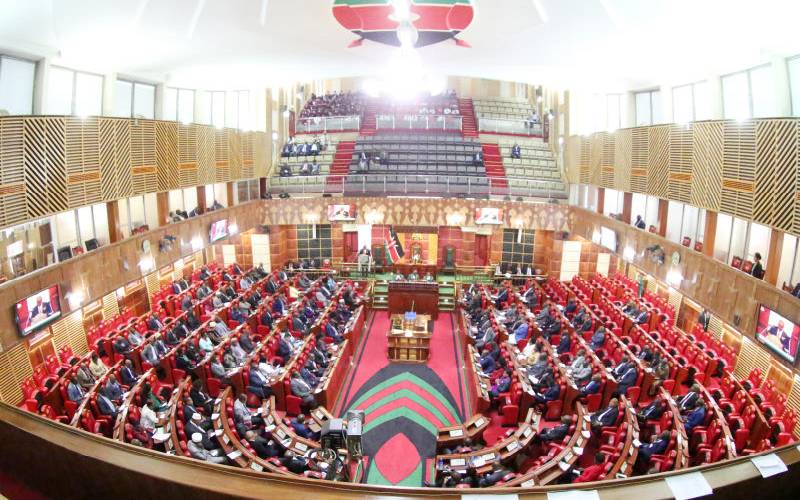A fresh political storm is brewing in Kenya over a surge in high-profile harambees spearheaded by Deputy President Kithure Kindiki and senior government officials. Lawmakers have clashed over the legitimacy and transparency of these public fundraising events, with critics questioning the source of the donations and their real intent.
Appearing on Citizen TV, legislators expressed contrasting views. Bomet Senator Hillary Sigei came to the defense of DP Kindiki, asserting that the funds were part of empowerment efforts targeting small-scale business operators across the country.
“You cannot ask the Deputy President where the money is coming from,” Sigei said, dismissing scrutiny over the millions being donated at public events. He emphasized that the initiatives were aimed at helping low-income earners rather than paying school fees or handouts.
However, not all lawmakers were convinced. Githunguri MP Gathoni Wamuchomba criticized the harambees as a politically motivated tactic designed to boost the Kenya Kwanza administration’s popularity.
“This is not an empowerment programme—this is politics,” Wamuchomba said, arguing that genuine empowerment efforts should be passed through Parliament with structured implementation.
Kathiani MP and National Assembly Deputy Minority Leader Robert Mbui warned that the widespread return of harambees could entrench corruption. “Harambees breed corruption. If you have to keep giving money, then you must question where it is coming from,” he stated.
Despite the criticism, Kindiki has remained steadfast in his defense of the donations. Speaking in South Mugirango on May 22, the Deputy President reiterated that the funds are part of the Sh28 billion Nyota Programme. The initiative aims to provide Ksh 50,000 in capital to 70 youth-led micro and small enterprises in each of Kenya’s 1,450 wards.
“The government is supporting kinyozi, salons, mama mboga vendors, and other small traders by encouraging aggregation into SACCOs and bolstering their growth,” Kindiki said.
As the debate rages, the public remains divided on whether these harambees represent genuine economic empowerment or serve as a veil for political patronage and questionable financial practices.

